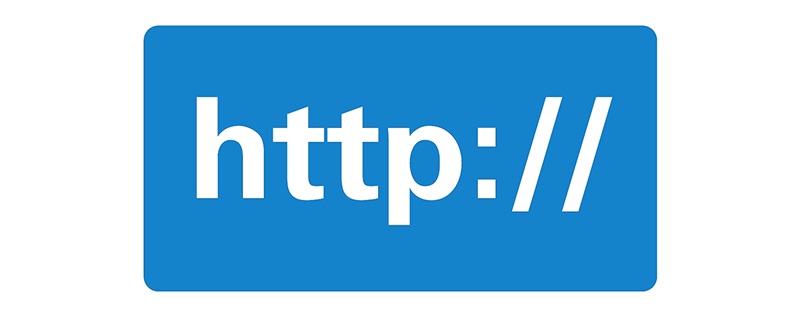
Commonly used methods of HTTP requests are: 1. GET method; 2. POST method; 3. HEAD method; 4. PUT method; 5. DELETE method; 6. CONNECT method; 7. OPTIONS method; 8. TRACE method.

#The operating environment of this article: Windows 7 system, Dell G3 computer.
Commonly used methods of HTTP requests are: GET method, POST method, HEAD method, PUT method, DELETE method, CONNECT method, OPTIONS method, TRACE method. The following article will introduce to you the common methods of HTTP requests in detail. I hope it will be helpful to you.
What is HTTP?
HTTP, Hypertext Transfer Protocol, is a response protocol that implements communication between the client and the server. It is used as a request between the client and the server.
The client (browser) submits an HTTP request to the server; the server then returns a response to the client; the response contains status information about the request and may also include the content of the request.
Commonly used methods of HTTP
1. GET method
GET method is used to give A given URI retrieves information from a given server, that is, requests data from a specified resource. Requests using the GET method should only retrieve data and should have no other effects on the data.
Send the query string (name/value pair) in the URL of the GET request, you need to write it like this:
/test/demo_form.php?name1=value1&name2=value2
Note:
GET requests can be cached, we You can find the GET request from the browser history and save it in your bookmarks; the GET request has a length limit and is only used to request data (not modified).
Note: Due to the insecurity of GET requests, GET requests must not be used when processing sensitive data.
2. POST method
The POST method is used to send data to the server to create or update resources. It requires the server to confirm the content contained in the request as distinguished by the URI. Another subordinate of the web resource.
POST requests are never cached and there is no limit on data length; we cannot find POST requests from browser history.
3. HEAD method
The HEAD method is the same as the GET method, but there is no response body and only the status line and header part are transmitted. This is useful for recovering the metadata written in the corresponding header without having to transfer the entire content.
4. PUT method
The PUT method is used to send data to the server to create or update resources. It can replace all current elements in the target resource with the uploaded content. content.
It will place the contained element under the provided URI, which will be changed if the URI indicates the current resource. If the URI does not indicate a current resource, the server can create a resource using that URI.
5. DELETE method
The DELETE method is used to delete the specified resource. It will delete all current contents of the target resource given by the URI.
6. CONNECT method
The CONNECT method is used to establish a tunnel to the server identified by the given URI; it changes the connection request through a simple TCP/IP tunnel, usually Implements the use of decoded HTTP proxies for SSL-encoded communications (HTTPS).
7. OPTIONS method
The OPTIONS method is used to describe the communication options of the target resource and will return the HTTP policy that the server supports predefined URLs.
8. TRACE method
The TRACE method is used to perform a message loopback test along the path of the target resource; it responds to the received request so that the client can see it What (assuming any) progress or increments were made by the intermediate server.
Summary: The above is the entire content of this article, I hope it will be helpful to everyone's study.
The above is the detailed content of What are the common methods of HTTP requests?. For more information, please follow other related articles on the PHP Chinese website!